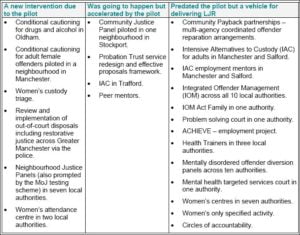
Homelessness and re-offending
A proper assessment will have to wait until we have more details but these figures do suggest that Payment by Results may be a more successful approach when savings are shared between government and providers with an explicit understanding that providers will reinvest their success payments rather than merely pass them on to shareholders.










